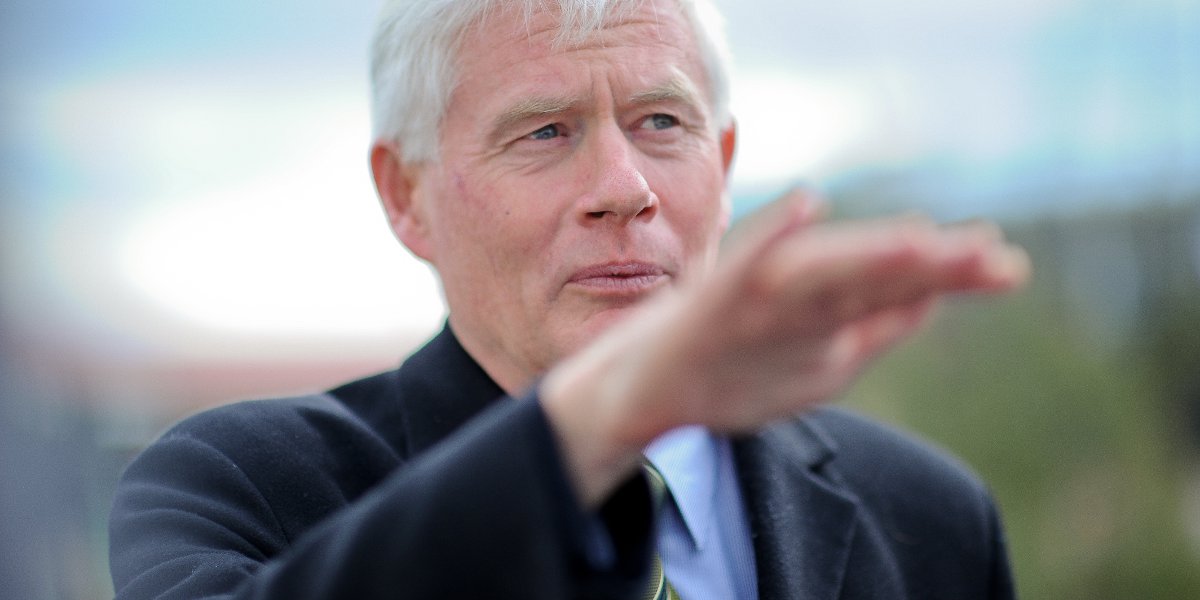Voting guide: the planning system

Planning regulations determine the shape of our cities. Photo: Nat Rogers / InDaily
Planning laws are complex, arcane and often dull – but they’re important because they fundamentally shape the places where we live and work.
In this election there are very clear philosophical – if not policy – differences between the major parties on planning law. We’ve summarised the policies of each party below.
Liberals – Shadow Minister for Planning Vickie Chapman
- Government and local government should be able to work harmoniously on planning: there’s no need for Government to start a war.
- Councillors should stay on development assessment panels.
- A review of the 30-Year-Plan with a focus on its population forecasts is needed. “It’s clear to us the material underpinning the current population data is illusionary in its expectations and predictions,” Chapman says. The review might lead to a reduction in housing targets and height limits.
- Election policy: Create legislated step-in powers for the State Government to take over planning approvals where councils fail to meet set timeframes.
- Inner-suburban councils shouldn’t have planning approval powers on developments over eight storeys, but anything below that they should have. This policy represents a rollback of the State Government’s most-recent changes to planning.
- “The State Government and parliament have a role in setting the rules, signing off for the plans, and the assessment is with councils” – Chapman
Analysis: While her leader has been busy angering local councils with his bid to cap rate rises, Chapman’s been winning friends with her opposition to the Government’s planning changes in the inner city. However, beyond a policy to roll back some of the Government’s planning changes that affect a handful of inner-suburban councils, and a reasonably clear statement on philosophy, there is not a lot of detail on the Liberals’ planning policy. It remains to be seen what the Liberals do in the area if they win government – especially as Steven Marshall has committed to being pro-business. That goal might run into early conflict with any plans Chapman has for a non-interventionist Government. The Liberals have been making favourable noises about a proposal for a huge urban development at Roseworthy, north of Adelaide.
- Planning Minister John Rau. Photo: Nat Rogers / InDaily
Labor – Planning Minister John Rau
- Key goal of planning strategy: limit urban sprawl and increase the number of people living in the city and inner suburbs. Housing stock to become significantly denser in some areas. This has been achieved by regulation limiting further expansion of the city and increasing height limits in the city and inner suburbs.
- Councils should have the power to set development policies and specify the type and scale of developments they want built in local areas, but they shouldn’t be the organisation that assesses compliance with that policy. That job should be left to an independent panel, says Rau.
- Councillors shouldn’t be on development assessment panels, the potential for a conflict of interest to emerge is too large (this is Rau’s personal view, not party policy, says Labor).
- Protect key agricultural areas – the northern Adelaide Plains and the Adelaide Hills – through protection legislation, similar to what has already been enacted for the Barossa and McLaren Vale.
- On the Liberals’ planning policy: “I thought it was opportunistic, and I thought it was an attempt to curry favour with [local councils] and not actually to have the real backbone required to stand up and say good policy sometimes means that you have to say things to people that they may not necessarily want to hear… but you have come to that decision because you believe objectively that that is the way to go forward.”
- Taking planning approval from multiple local councils and giving it to a single central body gives confidence to the development industry. All their proposals will be assessed by the same body, rather than several fragmented bodies. The changes made toward this have increased investment and development in the city.
- “I think [council’s] role is absolutely essential in the policy formulation stage, in other words writing the rulebook against which each individual application will be assessed. It only brings trouble to have the same people assessing a policy as the people who are formulating the policy” – John Rau.
Analysis: Planning has really been Labor’s strong point over the last four years – even if you don’t agree with the vision, you can see a clear ambition and vision, which is to be applauded. But its push has run into trouble: there are concerns from some communities about medium and high-density developments in their areas, and community groups and councils complain about the quick pace of change and a perceived lack of consultation. A major review of the planning system, ordered by Rau, is due to report later this year.
Greens – Mark Parnell, leader of the Greens in South Australia
- Key policy principle: removing the ability of Governments to interfere and impose their vision on local communities.
- Governments should be restricted from overriding local council development plans.
- Expert health and environmental bodies including the EPA should have a greater say in developments.
- Neighbours should have greater rights to appeal against neighbouring developments.
- Councils need to be involved in planning approval because they have the local knowledge needed to make good decisions, and they end up dealing with the development when it’s completed.
- “Writing the rules is a job primarily for local councils. I’d go further and I’d curtail the right of the minister to ride roughshod over local councils when they go through this exercise” – Mark Parnell.
Family First – Robert Brokenshire
Family First say they will release a state-specific planning policy before polling day.






